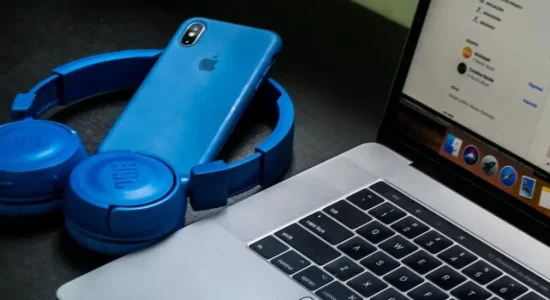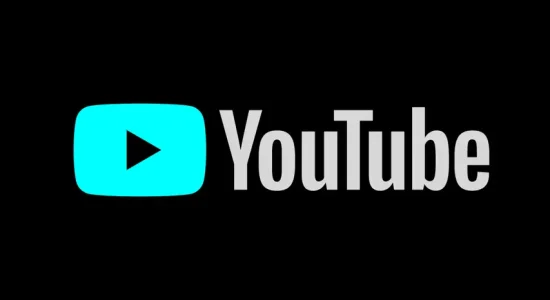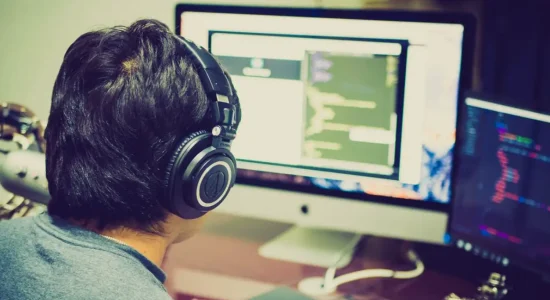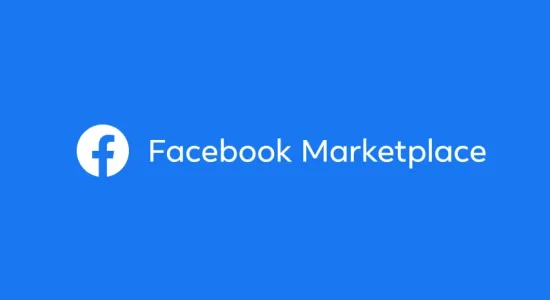There’s no shortage of creative ways to earn a passive income and diversify your income sources. One such method is creating online games or other forms of digital entertainment and making money by selling them or through ad revenue.
That said, can you follow this approach to make money from Scratch projects?
You can’t get money from Scratch directly as it doesn’t support monetization. That said, it’s possible to make money by publishing your unshared Scratch projects on other monetizable platforms. However, since Scratch is a non-profit, the community doesn’t appreciate users trying to profit from it.
In this article, I’ll discuss whether you should consider directly using Scratch to make money or use it as intended and make money in a way that’s not frowned-upon by the community.
Things To Know Before Trying To Make Money From Scratch
I’ve heard a few people talking about how they made money from their Scratch projects. And since I’ve devoted my life to learning new, creative ways to generate additional streams of income, I thought I’d give it a look.
Through my research, I found that while it is possible to make some money from Scratch, this isn’t achievable on the platform itself. You’ll have to use other websites and digital distribution systems to publish your Scratch projects and make money from there.
However, even if you decide to put in the effort, there are still a few caveats you need to be aware of:
1. Scratch Is Designed To Help You Learn Coding
At its core, Scratch is an educational platform as well as a coding language designed to help its users learn to code. It also happens to be one of the largest coding communities in the world for children aged 8-16. That said, younger or older users can also utilize Scratch to learn the fundamentals of coding and how to think like a programmer.
By using Scratch, you’ll be able to create games, animations, and digital stories by leveraging a simple and intuitive interface.
The goal isn’t to write code, but it’s more about using the available tools and digital assets to help turn your vision into reality. This will allow you to grasp computational thinking and help you develop your problem-solving skills.
Moreover, thanks to the massive community you’ll find on Scratch, it’ll also help you learn the importance of creative teaching, collaborating with others and self-expression.
So, as you can see, Scratch is a platform designed to help you learn, explore, network, collaborate, grow, and understand why certain approaches work in programming while others don’t.
Now, bringing a money-making mentality into Scratch can ruin this great community. People will start to focus on what makes money and ignore topics that don’t. As a result, the platform will overflow with similar types of apps (ones that are most profitable) and lack the diversity necessary for learning – learning, which you can later use to make money.
2. Scratch Is a Non-Profit and Survives on Donation
Scratch is a non-profit and a completely free-to-use platform for users to learn to code, communicate and collaborate, share each other’s projects, and so on. It doesn’t charge any money, nor is it ad-supported.
So, how does Scratch make money?
The platform is sustained by donations from its users or big corporations and universities.
But what does this have to do with making money from Scratch?
Well, it’s more or less a question of morality and ethics. You’re getting a service completely for free, and the people behind it aren’t earning anything as well.
So does it feel right to use this service to make money?
3. Scratch Doesn’t Have Any In-Built Monetization Methods
Apart from collecting donations, Scratch doesn’t have a system in place to help generate income or make money from its users. There’s no payment gateway integration, nor is there a way to integrate ads into Scratch projects and earn money from viewership.
Therefore, if you want to make money using Scratch, you can’t directly do so using the platform.
This clearly indicates that Scratch was never intended as a money-making platform. Instead, it’s a community devoted to learning and building connections.
The only way to make money off of Scratch is if you take an indirect approach where you take the source code for your Scratch project and publish it on another website or web store where you can either sell it or integrate ads in it to earn some money.
4. All Work That You Share Is Released Under the CC License
It’s important to note that all the various projects you share on Scratch built using the programming language are released under the Creative Commons (CC) license, specifically Creative Commons Attribution-ShareAlike 2.0.
This means that once you create and share your Scratch project on the platform, anyone can copy and redistribute the source code in any format or medium. Moreover, they’re also allowed to modify your code, create a different project from your work, and redistribute that.
So, as you can see, trying to monetize a shared project available under a CC license isn’t practical.
That said, it’s worth noting that your Scratch project only becomes available under the CC license when you share it on the platform. If you don’t share it, you can attach a different proprietary license to the code and sell it that way.
5. Profiting From Scratch Can Lead to Copyright Violation
When using Scratch to create a game, animation, or digital story, you’ll get to use different elements like sound effects and images to help you build your project.
Now, most of these elements fall under the CC license, and you can use it for commercial purposes as long as you provide credit to the source. However, some of these elements are trademarked, and using them will lead to copyright violations.
Furthermore, if you need to transport the entire Scratch program for your game or animation to run, this can also be problematic because you aren’t allowed to sell copies of the program.
So, if you were thinking that everything available on Scratch is free and at your disposal for making money, you’d be wrong.
To monetize your Scratch projects and avoid potential legal trouble, you’ll need to create the images and sound effects yourself. Then you can use the platform to animate your elements and design a fun and interactive project others can enjoy.
6. The Community Doesn’t Appreciate Users Trying To Make a Profit
As of 2021, Scratch has over 43 million registered users. This makes Scratch the biggest coding community for children.
These users are constantly busy creating new projects on Scratch, sharing their work, viewing/playing other people’s work, interacting with each other, etc. This is all possible because of Scratch’s decision to go with a CC license and provide free access to all.
As a result, let’s say one user creates a game using Scratch. Another person can play it, and if they like it or feel inspired, they can dig into the code to learn how it was made. They can further modify the code to make their remixed version of the game or add extra content to it.
So as you can see, the platform and the community benefits from collaboration and free access.
However, as you can imagine, if more people try to use the platform as a means for monetization, that’ll disturb the current community dynamics.
I’ve been browsing around some Scratch discussion boards and found many users had a strong opinion on how the platform should not be utilized as a means for money-making.
As such, if you don’t want to upset the community, it’s best to use some other coding platform like Stencyl or Unity for making and selling games.
7. You Can Use Scratch To Build a Network
In the previous section, I talked about how you shouldn’t directly monetize your Scratch games because that’ll upset the community.
But why is that a big deal?
Well, let me tell you why – the Scratch community is the platform’s biggest asset.
Once you create and share a game or animation on Scratch, it becomes accessible to millions of users. People can now come in and view your work, “heart” it if they like it, comment on it, access the source code to build upon it, and much more.
The same goes for you. You, too, can access the code for other users’ work and talk with them in the comments.
This type of relationship helps you foster a network where everyone shares a similar passion as you do. You can then utilize this network to learn new things, ask for help with personal projects, or even create professional connections that’ll help you land awesome gigs outside Scratch.
As a result, leveraging the Scratch community is an indirect way to make money from Scratch, where everyone is happy.
8. You Can Make Coding Tutorials Using Scratch To Make Money
Scratch is an excellent platform with great tutorials to help students learn to code. However, at the end of the day, Scratch is a tool, not a teacher. And this fact provides you with an excellent opportunity to indirectly use Scratch to make money.
Currently, there’s a massive demand in the market for coders. In turn, more and more people want to learn coding to access better jobs and earn more money.
If you know how to code, you can jump into this market and start teaching how to code. You can offer your courses on YouTube, where you can make money via ads. Alternatively, you can also sell your courses on Udemy at a flat rate and make money that way.
But where does Scratch come into all of this?
Remember how Scratch and the projects developed using it fall under the Creative Common license? This means you’re free to redistribute it in any format or media, as long as you credit the creator.
So, you can pick a Scratch project and showcase it inside your course to teach your students different coding ideas and concepts. You can also create your own unique Scratch project demonstrating how a particular concept works so your students can visualize it.
This way, you’re not directly profiting from Scratch, but you are using the platform to make your courses richer, which will help you earn more.
9. You Can Profit by Capitalizing on Your Coding Skills
Profiting directly from Scratch is impossible, and making money using Scratch projects is also frowned upon by the community.
That said, no one is stopping you from using all the knowledge and experience you gathered from Scratch to make money. In fact, that’s what Scratch is all about!
Scratch, by design and intent, is a platform for learning. It has amassed massive success by delivering a quality educational environment to its users. Turning it into some sort of a marketplace will just ruin it.
Instead, after using Scratch, you’ll develop a sense of computational thinking and problem-solving. This knowledge will help you immensely in creating your programs and games, provided you also invest some time learning a programming language used in the industry.
You can now sell your programs and games online to earn money. Moreover, you’ve also learned a highly employable skill which means you can apply for some great jobs and earn money that way.
That said, if your interest was making passive income, that too is possible with your newly learned software development skills.
Final Thoughts
You can’t directly earn money from Scratch, as it is a non-profit platform primarily designed to help users learn coding.
Furthermore, all projects you create and publish using Scratch will go under the creative commons license, making it difficult to monetize.
There’s also the issue that the Scratch community doesn’t appreciate users trying to make a profit from the platform.
That said, you can still make a profit from the time you spend on Scratch by leveraging the community, making coding tutorials using Scratch resources, and capitalizing on the coding skills you learn from Scratch.







